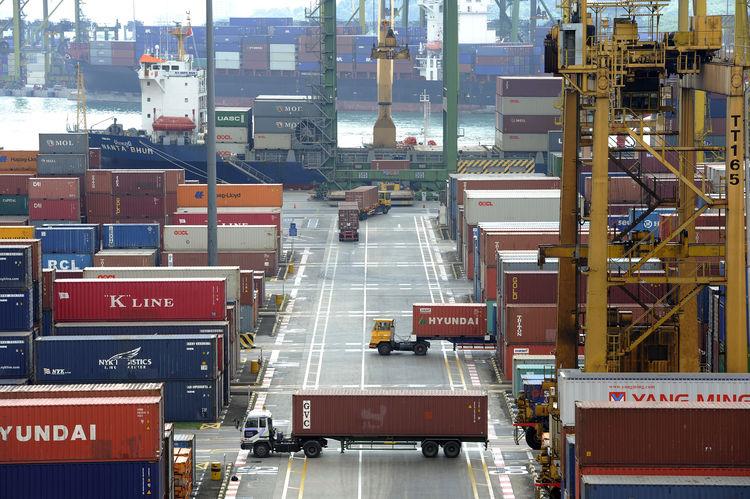- APM Terminals Preaches Gender Diversity in Economic Development
APM Terminals Apapa Limited has challenged qualified women professionals to take their right place in Nigeria’s economic development, and should not be hindered by gender biases.
The advice came from the Head, Human Resource of APM Terminals Apapa, Bunmi Pratt, as female employees joined other women across the world to mark the 2017 International Women’s Day, with the theme, “Be bold for Change”.
Globally, and even more so in Nigeria, women play secondary roles in socio-economic development, a development that the United Nations is struggling to change by encouraging the participation of more women in politics and economy.
The International Women’s Day celebrates the social, economic, cultural and political achievements of women globally. The day, which is celebrated every March 8, also marks a call to action for accelerating gender parity.
To this end, Pratt disclosed that APM Terminals is looking at hiring more women within the group to achieve gender diversity. “We need more professional women to stand up and take up the jobs that they are qualified for and not restricted by gender bias,” she said
According to her, “A.P. Moller-Maersk believes in diversity, not just gender diversity, but diversity in nationality or ethnicity, thoughts and even disability as a result.
“To achieve this gender diversity especially for women, we have anchored the diversity principle in our hiring process so that when we hire, we don’t just hire a woman but we hire and make sure that we have a diverse work force, reaching out to the talents, including women available in the country.”
She said the company is committed to providing the right environment for women to enable them thrive in the workplace, which made the company to change its maternity policy, to help women keep their jobs rather than quit after child birth.
“For us at APM Terminals, especially in Nigeria, we are very committed to looking at the whole life cycle of the female employee, from the recruitment process, to training, development and even during maternity.
“We are committed to creating the right environment for women to do their job while also taking care of the social life. We know that women have certain responsibilities, so we want to create a work environment that allows them to manage both, effectively creating an inclusive and engaging work environment.
“Last year, we changed our maternity policy to increase the retention of women following childbirth or adoption. We are now implementing a maternity policy that improves benefits during and after maternity leave for employees globally. This has helped most of the ladies who would otherwise have dropped out of work,” she said.
The President, Women in Logistics and Transportation (WILAT), Hajia Aisha Ali-Ibrahim, who doubles as the Port Manager, Lagos Port Complex, Apapa, also enjoined women to be more committed, hardworking and to believe in themselves and their chosen careers.
The event attracted notable women from across the maritime industry, including members of WILAT. APM Terminals is the largest container facility in Lagos, Nigeria’s largest business district, and currently operates the Apapa and WACT facilities in Nigeria, with plans to develop a third at Badagry.
It is also the largest container terminal operation in West Africa, having doubled container traffic after concession began in 2006, with dramatically improved productivity.
A $350 million investment and expansion programme was announced for APM Terminals Apapa since 2006. Nigeria is the most populous nation in Africa, and the 7th-largest in the world with a population of 177 million, and is Africa’s largest economy.

 Naira4 weeks ago
Naira4 weeks ago
 Naira4 weeks ago
Naira4 weeks ago
 Travel3 weeks ago
Travel3 weeks ago
 Naira3 weeks ago
Naira3 weeks ago
 Jobs4 weeks ago
Jobs4 weeks ago
 Naira3 weeks ago
Naira3 weeks ago
 Investment4 weeks ago
Investment4 weeks ago
 Travel4 weeks ago
Travel4 weeks ago




























